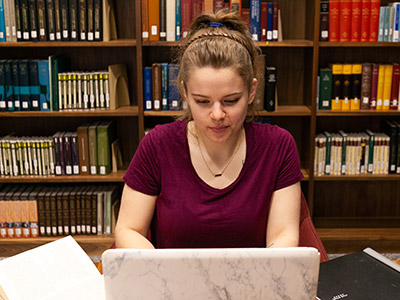Seminary Plans Hy-Flex 2021-2022 Academic Year
Pittsburgh Theological Seminary cares deeply about forming and equipping students for a wide variety of ministries. This is our central mission.
Since the arrival of the COVID-19 pandemic in early spring 2020, we have worked hard to ensure the safety of students, faculty, staff, and the community around us. This has meant that we have most often delivered courses via a variety of forms of remote instruction. The Seminary community made this transition quickly and effectively in March 2020 and has operated well as a community of learning, even if at a distance.
The future of higher education remains uncertain amid a pandemic that has yet to dissipate. We anticipate the uncertainty will remain for some time, perhaps well into the 2021-2022 academic year. With a continued commitment to delivering excellent education, and a desire to provide predictability for students and faculty, we have made plans for the 2021-2022 academic year that will allow pathways for both residential and remote students.
While we are planning and hoping to return to in-person instruction in fall 2021, when possible, all master's- and doctoral-level classes during the full 2021-2022 academic year will be made available to students joining courses from a distance even if in-person instruction is also available. For residential and Pittsburgh-area students, this will sometimes mean that they will be present in a physical classroom with other students and the instructor, with distance students joining the classroom via technology. At other times, when faculty members determine that teaching and learning will be most effective when a class or class session is fully remote, all students will join the course via technology. For students traveling to Pittsburgh for doctor of ministry courses, this means that instruction will be in-person in Pittsburgh if possible, but remote access will also be available for students who do not feel that travel and/or that in-class instruction is safe for them. Decisions about class formats—at the master's and doctoral level—will be made on a course-by-course basis, with the achievement of student learning outcomes guiding decisions.
Beyond classes, by the fall of 2021, we are hopeful that public health conditions will allow in-person gatherings on campus—even if social distancing and masking requirements remain in place—for important and longed-for communal activities like worship, fellowship, student organizations, and other non-coursework-based student events. For students with access to the Pittsburgh campus during the 2021-2022 academic year, this will deepen opportunities for community formation. For students who plan to attend fully remotely during the 2021-2022 academic year, similar venues for worship and fellowship will be made available.
Decisions about delivery formats for the 2022-2023 academic year have not yet been made and will be announced in early 2022.

